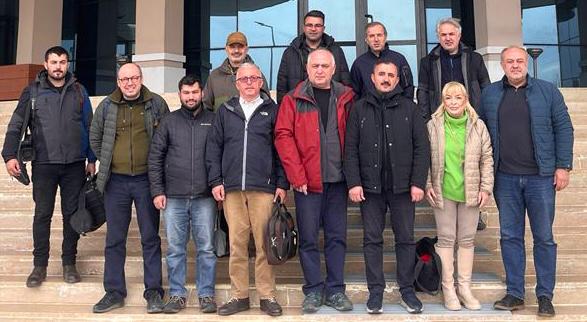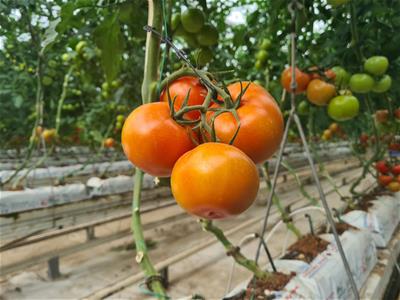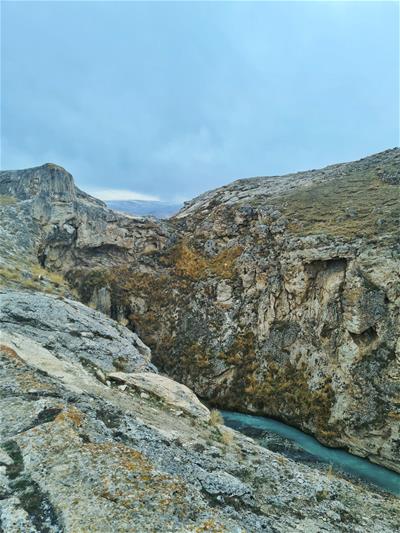In order to reveal the natural and cultural potential of the City of Ağrı and to make it a tourism destination, an "Academic Cooperation Protocol" was signed between Istanbul Technical University (ITU) and Ağrı İbrahim Çeçen University (AİÇU).
Within the scope of this protocol, academicians from two universities visited Diyadin district with the aim of revealing the hidden potential of Ağrı. Academics from Ağrı İbrahim Çeçen University (AİÇU) and Istanbul Technical University (ITU) took samples from the soil, rock and water in the region to study the water quality of the geothermal springs in Diyadin district. The samples taken will be examined in the laboratories of the Faculty of Mines at the ITU.
This potential of Diyadin district of Ağrı, which stands out with its rich geothermal resources, is being revealed in cooperation with Ağrı İbrahim Çeçen University (AİÇÜ) and Istanbul Technical University (ITU).
The infrastructure construction protocol of the first phase of the project, which is planned to use geothermal resources in the Diyadin district of Ağrı, was already signed earlier this year. In order to use the geothermal resources in the district in agriculture, tomato production is carried out 12 months of the year in the greenhouses established on 40 decares of land in the region.
AİÇÜ Vice Rector Prof. Dr. Faruk Kaya said the following on the subject: “Electrical energy production of geothermal energy, which is a renewable, clean, cheap, environmentally friendly and domestic underground resource, meeting regional heat needs, greenhouse cultivation, production of organic agricultural products, product drying, thermal tourism and health purposes. However, the geothermal energy in Diyadin, which has an important potential, has only been utilized in a very limited amount in the fields of greenhouse cultivation, regional warming and health so far.”
ITU Vice Rector Prof. Dr. Mustafa Kumral pointed out that most of the stones around were of travertine origin and volcanic interlayers. Kumral continued: “You can also smell sulfur here. The smell of sulfur is not normally encountered in old spas. When you go to Afyonkarahisar, you don't get this smell very much. It shows that there is a very young system in this region and that there is a rich magma in the depths, and we have also seen structures containing sulfur smell or structures with light iron at some points. Spas are also systems that economically produce mines.”
Head of Geophysical Engineering Department Prof. Dr. Abdullah Karaman underlined that the district has a large geothermal resource. Stating that the water is very hot and there are dozens of geothermal fields in the area, Karaman said: "Geothermal resources, which are rarely seen in the world, come out naturally from all sides. These are actually our natural geysers. Water enters, heats up deep in the ground and comes out to the surface. This is a very important resource for us, it is environmentally friendly and harmless. We are next to one of those geothermal resources that flow to the earth. It's an enormous potential. We know that hot water comes from a depth of 200 meters."
Emphasizing the need for geophysical research in the field, Karaman said: "I felt tremendous excitement here. As a geoscientist, I was really excited as someone who has spent years in this work. It would be a great pleasure for me to explore such a place. It is perhaps one of the most beautiful fields in which geophysics can be applied. It would be a source of pride for us to offer the service that will provide infrastructure to those who want to create projects and develop projects. As a university, we give all kinds of support. Even energy can be produced. We can only prepare the infrastructure."
AİÇU Vice Rector Kaya stated that together with academicians from ITU, they made a very productive and scientific field trip in the geothermal field and they carried out a preliminary assessment of the district's geothermal energy potential.
At the last day, Academics from the ITU-Faculty of Mines met with undergraduate students of AİÇU within a panel and answered students’ questions regarding their visit and the long-term collaboration that is aimed to initiate between the ITU and AİÇU.

.jpg?sfvrsn=2cbca371_2)
.jpg?sfvrsn=55114401_2)
.jpg?sfvrsn=54053f06_2)
.jpg?sfvrsn=55ceca4e_2)

.jpg?sfvrsn=bd42dc2d_2)
